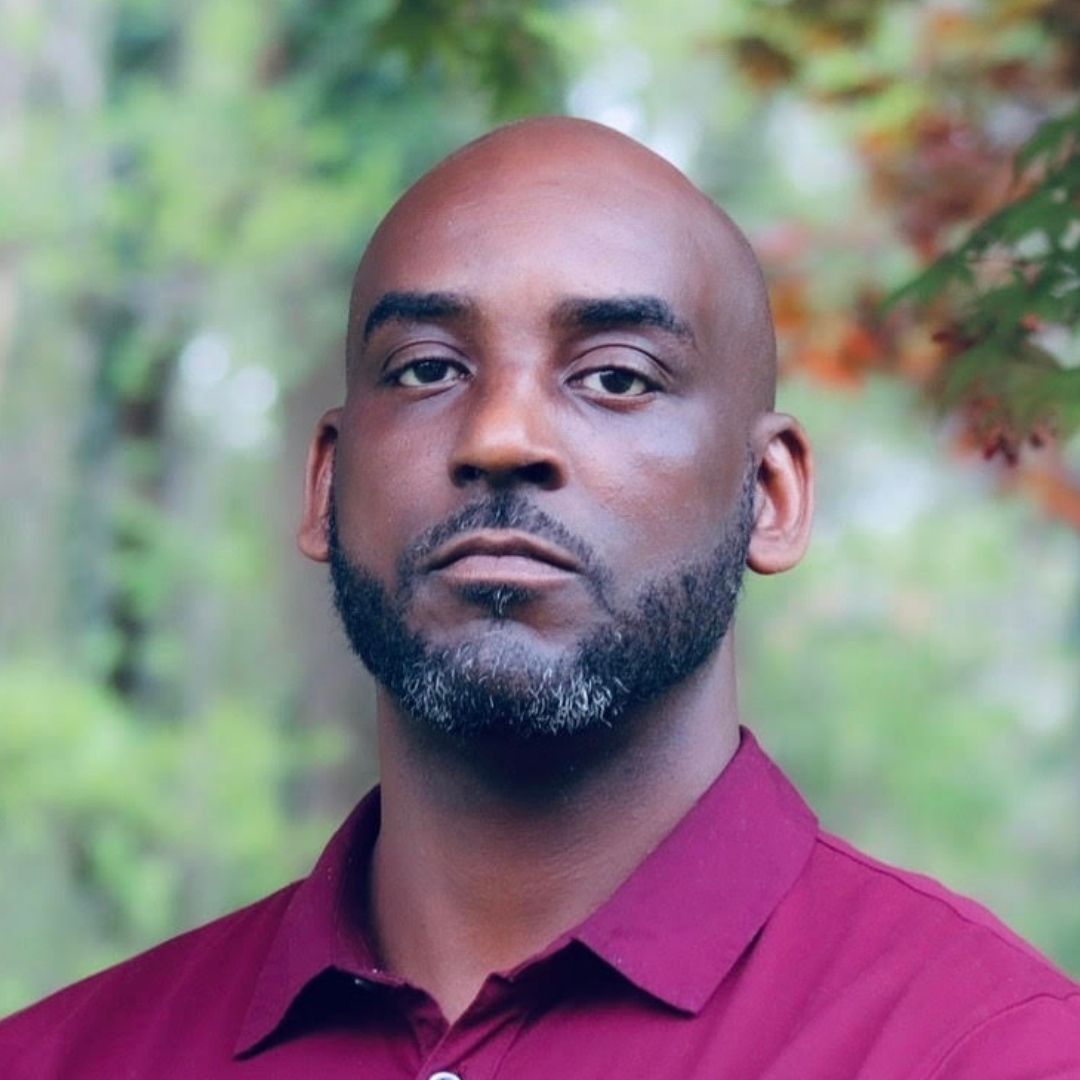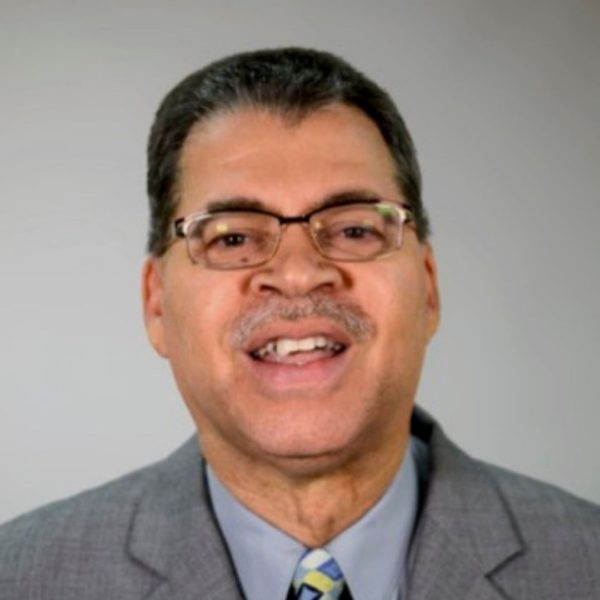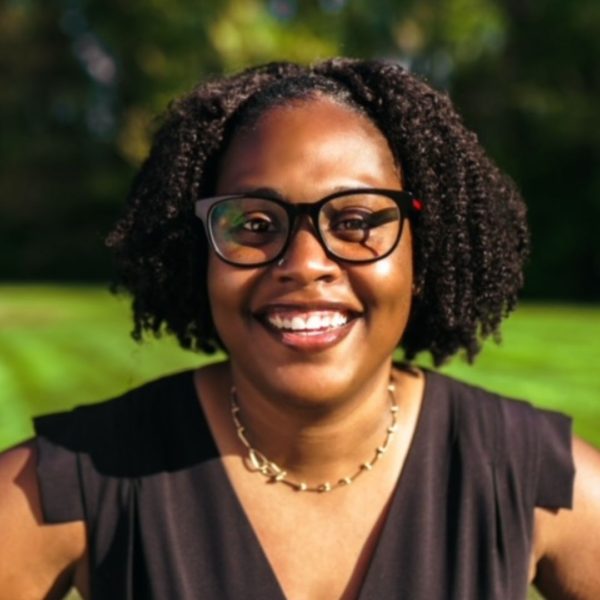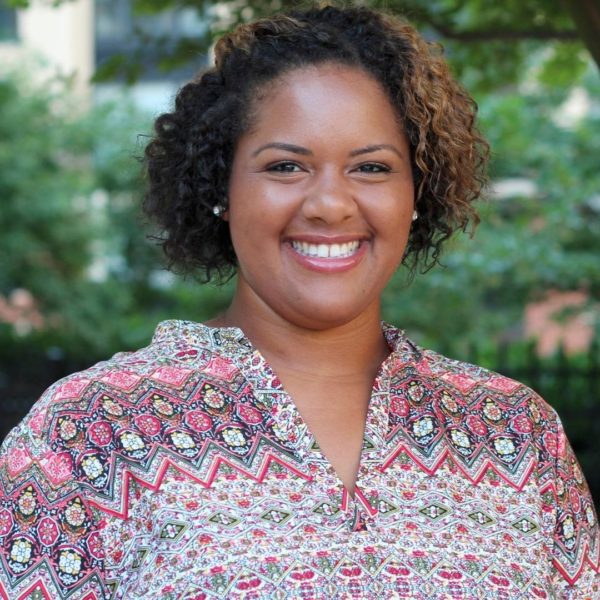The State of Diversity in Chesapeake Bay Restoration efforts: A panel Discussion on the Need for More Diversity in the Environmental Movement and How to Facilitate Positive Outcomes
Moderator
RANDY K. ROWEL JR.
 Randy Rowel, CRC’s C-StREAM Program Coordinator, earned degrees in social science, environmental sciences, and global sustainability, and has over 10 years of experience in teaching, and higher education across areas of instruction (undergraduate advisement and global travel courses and graduate resident in India) and research, over 10 years in DEIJ (including state-level organizations) and over 15 years in upper administration. He specializes in facilitating discussions, strategic planning, and professional developments around DEIJ in environmental and executive natural resource management.
Randy Rowel, CRC’s C-StREAM Program Coordinator, earned degrees in social science, environmental sciences, and global sustainability, and has over 10 years of experience in teaching, and higher education across areas of instruction (undergraduate advisement and global travel courses and graduate resident in India) and research, over 10 years in DEIJ (including state-level organizations) and over 15 years in upper administration. He specializes in facilitating discussions, strategic planning, and professional developments around DEIJ in environmental and executive natural resource management.
He served as Maryland Department of Natural Resources first ever Diversity and Inclusion Director, responsible for developing strategy, creating infrastructure, and programming, and introducing assessment methods like the Bilingual Assessment Tool, a program to provide workers with compensation for using multilingual skills on the job. Mr. Rowel has a record of coordinating funding activities for environmental projects as well as publishing in capacity building for solving our environmental challenges in communities of color. He also is owner of a grant and proposal writing firm, RR & Associates, where environment and community meet. He also is the Chair of the Environmental Commission for the City of Annapolis, the first African American person to ever hold that position.
Panelists
RICHARD W. ALLEN

Prior to MD DNR Allen worked as the Chief of Equal Employment Opportunity and Affirmative Action at the Maryland Aviation Administration-BWI Marshall Airport and an Equal Employment Opportunity Officer at the Maryland Transit Administration (MTA ) of MDOT. Richard has 24.5 years of work experience within Maryland state government units.
Prior to the Maryland State government, Allen served as the Executive Director of Suburban Maryland Fair Housing Inc., for 5 years in Montgomery County, MD, and as the Fair Housing Specialist of the Lancaster City-County Human Relations Commission in Pennsylvania for 3 years. Richard has approximately 33 years of fair housing, equal employment opportunity, the ADA and Reasonable Accommodations, and Title VI-Environmental Justice/LEP work experience.
Allen is a 1975 graduate of Howard University in Washington, D.C. with a Bachelor’s degree in Political Science.
Finally, Richard is a past First Vice-President of the Maryland State Chapter of the Southern Christian Leadership Conference (SCLC); a current member of the Executive Board at Large of the Montgomery County, MD NAACP Branch #7022; serving on the Housing and Labor and Industry Committees, more recently was appointed by County Executive Mark Erlich as a Member of the Montgomery County Committee Against Ethnic Hate; and serves on the Board of Directors at Large of the United Black Fund, Inc. of Washington, D.C. Region.
KELLY CLARK
 Dr. Clark is a Science Administrator, with experience in both program management and science policy. He is the founding Director of the Morgan State University’s Patuxent Environmental and Aquatic Research Laboratory (PEARL). He is the first African-American to hold the position of Director at an ocean sciences laboratory. As director, Dr. Clark worked with regional and national decision makers and resource managers to take sound actions on issues related to Maryland’s coastal and estuarine natural resources.
Dr. Clark is a Science Administrator, with experience in both program management and science policy. He is the founding Director of the Morgan State University’s Patuxent Environmental and Aquatic Research Laboratory (PEARL). He is the first African-American to hold the position of Director at an ocean sciences laboratory. As director, Dr. Clark worked with regional and national decision makers and resource managers to take sound actions on issues related to Maryland’s coastal and estuarine natural resources.
His expertise and insights are often sought after at the State and Federal level. At the National level he has been appointed to the Ocean Research Advisory Panel, to provide independent advice and guidance to the Cabinet-level National Ocean Council. He has served on the policy committee and Chaired the Education Committees of the National Association of Marine Laboratories. At the state level His present appointments included the Patuxent River Commission, where he is past Chair; and the Maryland Oyster Advisory Commission, which provides direction to the Maryland Department of Natural Resources. Through membership in such regional organizations as the Maryland Sea Grant Institutional Council and the Jug Bay Science Advisory Committee, Dr. Clark worked to ensure that science and scientists remain a relevant, present and useful part of our social framework.
Dr. Clark is a strong and persistent advocate for in increasing diversity in the marine sciences. At past positions as Program Manager for the Smithsonian Louis Stokes Alliance for Minority Participation, member of Human Relations Committee of the American Institute at Biological Sciences and Chair of the National Association of Marine Laboratories Education Committee he continually works to identify ways to increase participation by underrepresented groups.
Dr. Clark received his PhD in Marine Ecology in 2001 from the University of Maryland Marine Estuarine and Environmental Sciences Program. His research interests continue to be focused on predator-prey interactions and anthropogenic effects in the nearshore zone of estuaries. He is second of nine children and has been the other half of America’s Couple for 29 years and counting.
KIMBERLEY MITCHELL-JAMES

DR. RANDOLPH ROWEL

Dr. Randy Rowel is an Associate Professor in Morgan State University’s (MSU) School of Community Health and Policy and Chair of the Behavioral Health Sciences Department. Randy brings to the Board 40 years of public health practice, much of which took place in Anne Arundel County. Other areas of expertise include partnership development and evaluation, Community-Based Participatory Research, practice instructor for graduate level internships, qualitative research and diversity and inclusion-related training. Randy currently serves on the Anne Arundel Medical Center board of trustees and Co-Chair of the Health Equity and Anti-Racism Taskforce (HEART).
Anne Arundel County, where Dr. Rowel was born and raised, served as his training ground for public health. Here Dr. Rowel was a community organizer and founder of two non-profit organizations that addressed substance abuse prevention in public housing communities. Dr. Rowel delivered numerous cultural diversity training events to federal, state, and local agencies, one of which included training the entire Annapolis Police Department. He received his undergraduate degree at Morgan State University and his masters and doctoral degrees from the University of Utah and the University of Maryland College Park, respectively.
At Morgan State University, Dr. Rowel is also the Director of the Why Culture Matters Disaster Studies Project, an effort that engages students and faculty to inform public health professionals and faith- and community-based organizations about the needs of vulnerable populations during natural and technological disasters. In this capacity he utilized the arts as a community engagement strategy for numerous initiatives and served as an investigator for the Department of Homeland Security (DHS) funded National Center for the Study of Preparedness and Catastrophic Event Response (PACER) at Johns Hopkins University. Dr. Rowel and his research team conducted studies that examined the relationship between daily crisis (community stressors) and preparedness behaviors and developed curriculum entitled the Role of Pastors in Disasters: Training Pastors to be Agents of Safety. During this period, he served on National Academy of Science committees to advance disaster research.
While at Morgan, Dr. Rowel became increasingly involved with health care systems by engaging students and faculty in service-learning projects to improve health outcomes among low-income populations. He also served on MedStar Health’s Community Needs Assessment Taskforce and more recently Anne Arundel Health Systems’ Health Equity Taskforce.
Dr. Rowel resides in Annapolis with his wife DeShirle and is a proud father of 4 children and 8 grandchildren.
DARIUS A. STANTON II
 Darius A. Stanton II is professor, entrepreneur and chemical review manager at the US Environmental Protection Agency. Studying environmental science and political science in undergrad, Darius completed his Bachelors of Science at Claflin University in Orangeburg, South Carolina. Following Claflin University, Darius obtained a Masters in Environmental Management from Duke University’s Nicholas School of the Environment where he focused on global climate change and community-based environmental management. After graduate school Darius started his career at the Chesapeake Research Consortium (CRC), working as an environmental management staffer at the EPA’s Chesapeake Bay Program office. At the CRC, Darius lead the environmental justice and diversity workgroup initiatives. Before leaving the CRC, Darius spearheaded the creation of the Chesapeake Student Recruitment, Early Advisement, and Mentoring (C-StREAM) internship program. Darius currently works at EPA headquarters under the Office of Chemical Safety and Pollution Prevention and Prince George’s Community College as an Adjunct Professor.
Darius A. Stanton II is professor, entrepreneur and chemical review manager at the US Environmental Protection Agency. Studying environmental science and political science in undergrad, Darius completed his Bachelors of Science at Claflin University in Orangeburg, South Carolina. Following Claflin University, Darius obtained a Masters in Environmental Management from Duke University’s Nicholas School of the Environment where he focused on global climate change and community-based environmental management. After graduate school Darius started his career at the Chesapeake Research Consortium (CRC), working as an environmental management staffer at the EPA’s Chesapeake Bay Program office. At the CRC, Darius lead the environmental justice and diversity workgroup initiatives. Before leaving the CRC, Darius spearheaded the creation of the Chesapeake Student Recruitment, Early Advisement, and Mentoring (C-StREAM) internship program. Darius currently works at EPA headquarters under the Office of Chemical Safety and Pollution Prevention and Prince George’s Community College as an Adjunct Professor.
CARMERA THOMAS

Identifying Critical Uncertainties: Comprehensive Evaluation of System Response (CESR) Report
Moderator
DENICE WARDROP
 Denice Heller Wardrop was one of the first Systems Engineers to graduate from the University of Virginia, which she followed with an MS in Environmental Sciences from the same institution. She practiced as a consulting environmental engineer for over a decade before moving to State College PA, embracing football as well as basketball, and finishing a PhD in Ecology at Penn State. In addition to her role as Executive Director of the Chesapeake Research Consortium, she is a Research Professor of Geography at Penn State University. Her discovery areas are the functioning of wetlands of all kinds and general issues in landscape ecology, and she works a great deal on how human activities impact the ability of natural systems to provide ecosystem services. She serves on science committees that advise both the Chesapeake Bay and Everglades restoration efforts, and passionately supports humans and aquatic systems finding ways to bring out the best in each other.
Denice Heller Wardrop was one of the first Systems Engineers to graduate from the University of Virginia, which she followed with an MS in Environmental Sciences from the same institution. She practiced as a consulting environmental engineer for over a decade before moving to State College PA, embracing football as well as basketball, and finishing a PhD in Ecology at Penn State. In addition to her role as Executive Director of the Chesapeake Research Consortium, she is a Research Professor of Geography at Penn State University. Her discovery areas are the functioning of wetlands of all kinds and general issues in landscape ecology, and she works a great deal on how human activities impact the ability of natural systems to provide ecosystem services. She serves on science committees that advise both the Chesapeake Bay and Everglades restoration efforts, and passionately supports humans and aquatic systems finding ways to bring out the best in each other.
Panelists
BILL DENNISON

Dr. Bill Dennison is a Professor of Marine Science and Vice President for Science Applications at the University of Maryland Center for Environmental Science (UMCES). Dr. Dennison’s primary mission within UMCES is to coordinate the Integration and Application Network.
The University of Maryland Center for Environmental Science is one of two research and service institutions in the 12-institution University System of Maryland. UMCES is comprised of three laboratories distributed across the watershed of Chesapeake Bay within Maryland: Appalachian Laboratory in Frostburg, Chesapeake Biological Laboratory on the western shore of Chesapeake Bay in Solomons and Horn Point Laboratory on the eastern shore of Chesapeake Bay near Cambridge as well as Maryland Sea Grant College in College Park, Maryland. UMCES also operates an Annapolis Liaison Office.
Bill Dennison rejoined UMCES in 2002 following a ten year stint at the University of Queensland in Brisbane, Australia. He originally started at UMCES (then the Center for Environmental and Estuarine Science) in 1987 as a Postdoctorate/Research Assistant Professor based at Horn Point Laboratory. In Australia, Bill developed an active Marine Botany group at the University of Queensland with strong links to the Healthy Waterways Campaign for Moreton Bay. Bill obtained his academic training from Western Michigan University (B.A., Biology & Environmental Science), the University of Alaska (M.S., Biological Oceanography), The University of Chicago (Ph.D., Biology), and State University of New York at Stony Brook at Stony Brook (Postdoc, Coastal Marine Scholar).
ZACH EASTON
 Dr. Easton is a professor in the department of Biological Systems Engineering at Virginia Tech. His research groups core programs focus on synergies between soil & water resources, environmental change, biophysics, and sustainable agricultural systems. They do this using high level computational approaches, remote and in situ sensing, physical studies, and systems level analysis. The research group is interdisciplinary with backgrounds in hydrology, biology, atmospheric science, computer science, and engineering and their collaborators work in fields from animal science to agricultural economics to robotics and autonomous vehicles.
Dr. Easton is a professor in the department of Biological Systems Engineering at Virginia Tech. His research groups core programs focus on synergies between soil & water resources, environmental change, biophysics, and sustainable agricultural systems. They do this using high level computational approaches, remote and in situ sensing, physical studies, and systems level analysis. The research group is interdisciplinary with backgrounds in hydrology, biology, atmospheric science, computer science, and engineering and their collaborators work in fields from animal science to agricultural economics to robotics and autonomous vehicles.
KENNETH ROSE
 Kenneth Rose is the France-Merrick Professor in Sustainable Ecosystem Restoration at Horn Point Laboratory (University of Maryland Center for Environmental Science). He received his MS and PhD in Fisheries from the University of Washington, and was a research staff member at Oak Ridge National Lab and Professor and Associate Dean at Louisiana State University before coming to UMCES. Dr. Rose’s research uses mathematical and simulation modeling to predict population and food web responses to environmental factors, habitat, harvesting, and multiple stressors (including deoxygenation, climate change, and ocean acidification). He has worked in lakes, rivers, estuaries, coastal shelf, and open ocean systems. Dr. Rose has served on many advisory and science review committees, including for the National Academy of Sciences and Army Corps of Engineers, biological opinions, environmental impact statements, and planning and assessing coastal restoration. Dr. Rose has published over 200 scientific papers, served as editor for multiple journals, is a fellow of the American Association for the Advancement of Science, and received the lifetime achievement award from the American Fisheries Society. Dr. Rose is presently an at-large member of the Chesapeake Bay Scientific and Technical Advisory Committee.
Kenneth Rose is the France-Merrick Professor in Sustainable Ecosystem Restoration at Horn Point Laboratory (University of Maryland Center for Environmental Science). He received his MS and PhD in Fisheries from the University of Washington, and was a research staff member at Oak Ridge National Lab and Professor and Associate Dean at Louisiana State University before coming to UMCES. Dr. Rose’s research uses mathematical and simulation modeling to predict population and food web responses to environmental factors, habitat, harvesting, and multiple stressors (including deoxygenation, climate change, and ocean acidification). He has worked in lakes, rivers, estuaries, coastal shelf, and open ocean systems. Dr. Rose has served on many advisory and science review committees, including for the National Academy of Sciences and Army Corps of Engineers, biological opinions, environmental impact statements, and planning and assessing coastal restoration. Dr. Rose has published over 200 scientific papers, served as editor for multiple journals, is a fellow of the American Association for the Advancement of Science, and received the lifetime achievement award from the American Fisheries Society. Dr. Rose is presently an at-large member of the Chesapeake Bay Scientific and Technical Advisory Committee.
KURT STEPHENSON
 Kurt Stephenson is a professor in the Department of Agricultural and Applied Economics at Virginia Tech where he teaches environmental and natural resources economics. His research interests include market-based environmental policy and water resource economics and policy. Kurt currently serves on a number of governmental advisory committees and recently concluded 8 years of service on the Chesapeake Bay Program’s Scientific and Technical Advisory Committee.
Kurt Stephenson is a professor in the Department of Agricultural and Applied Economics at Virginia Tech where he teaches environmental and natural resources economics. His research interests include market-based environmental policy and water resource economics and policy. Kurt currently serves on a number of governmental advisory committees and recently concluded 8 years of service on the Chesapeake Bay Program’s Scientific and Technical Advisory Committee.
JEREMY TESTA

